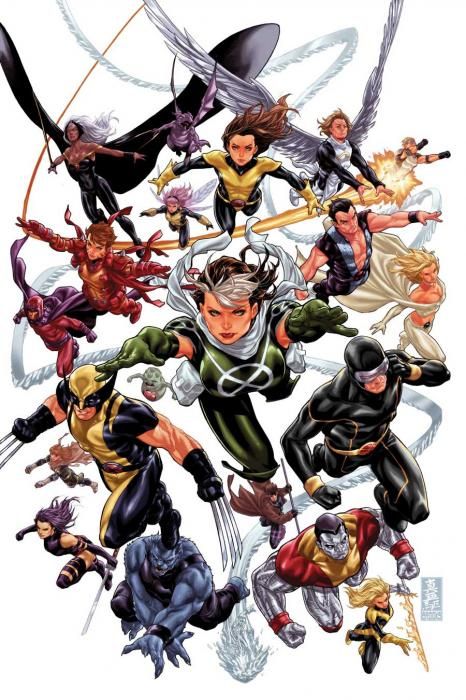"X-Men Legacy" #275 sees Christos Gage and David Baldeon mark the notional end of the Marvel's second longest-running X-book. Of course, it'll be back next month with fresh numbering and a new creative team, but let's not let that get in the way of semantics. This is, for all intents and purposes, the last issue of the book that was sometimes called "X-Men," sometimes called "New X-Men" and more recently called "X-Men Legacy."
Common parlance has made one thing abundantly clear: you end with either a bang or a whimper. In 1991, this series arrived with one of the biggest bangs ever to hit the industry, so it's a shame to see it go with a whimper that barely even qualifies as such. Rather than find a way to sum up the book's varied and diverse history, Gage instead provides a coda to its more recent incarnation as a Rogue solo title with a guest supporting cast -- but it doesn't just ignore the book's past, it also ignores its own cast. Magneto left last month, but Gambit, Frenzy and Marvel Girl fail to make any appearance worth mentioning.
It's fair to say that it's a weak ending. Gage's version of Rogue was never in line with the Mike Carey version that preceded it, squandering a rich, layered version of the character in favor of an almost cartoonish representation. The trite (you might even say cheesy) conclusion to this issue (and thus the run as a whole) demonstrates perfectly just how far his interpretation of Rogue differs from Carey's, as she displays none of the character's fire or weight.
The story itself doesn't even provide an ending to Rogue's arc, it simply re-states what we've already been through with the character over the last few years. The use of Mimic as a foil makes some sense due to the similarities of their powers and psychological makeup but his position in the cast is tenuous at best. As a Mimic story, there's something in the idea, but he's really being shoe-horned into a role as someone at the start of the same journey Rogue went on, which hasn't really been true up until this issue.
Even as a straight superhero story, it can't get quite get things right. The big beats are particularly poor: Rogue's inspirational speech is over-long, corny and didactic, the visuals of the big action sequence, flatly ridiculous. Baldeon's artwork seems generally uninspired and while certain individual panels are beautifully constructed, it's not all good. In general, his faces look odd (the eyes all seem too high), the layouts range from messy to uninteresting, and some of the action sequences are borderline incomprehensible.
In all honesty, it reads like a fill-in, not the ending to one of Marvel's most enduring titles. Perhaps it was never possible to put a satisfying cap on that legacy (no pun intended). Perhaps the creators just weren't interested in doing so. It's nice that it ends on an optimistic note (which is something of a rarity in modern comics) but aside from that, there's little here that makes it stand out as anything special.

